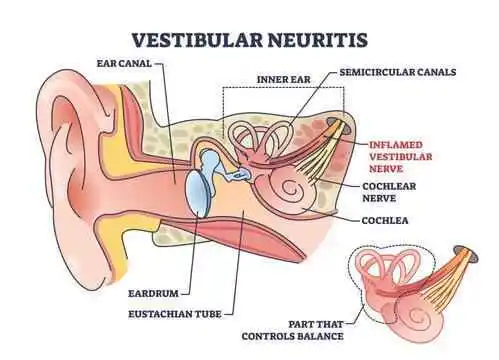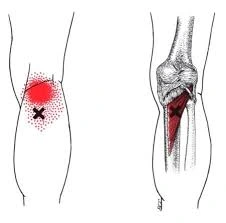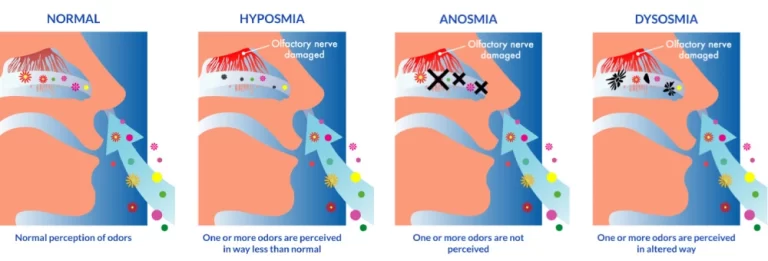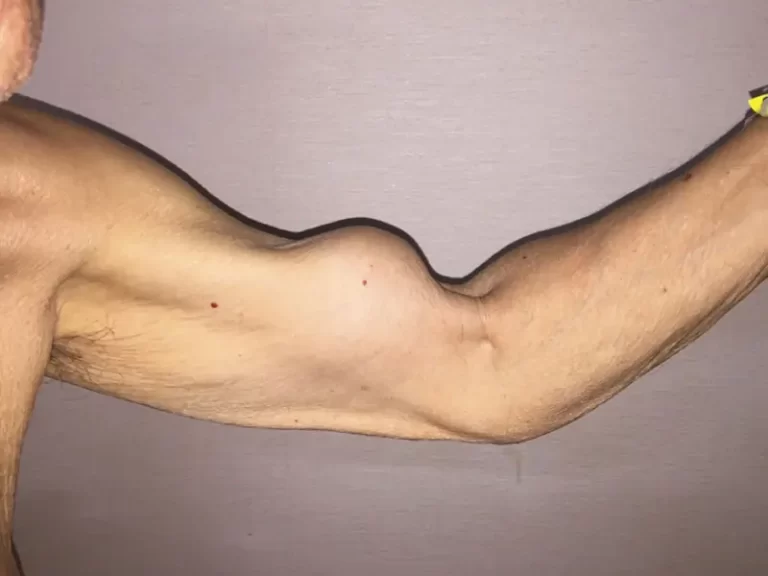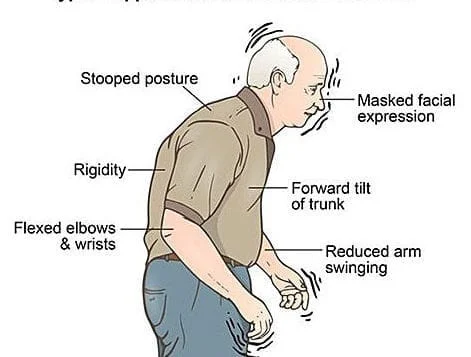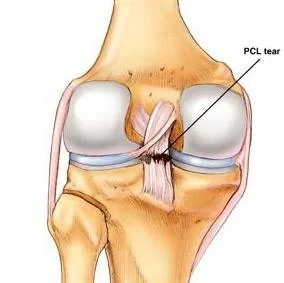Vestibular Neuritis
The condition known as vestibular neuritis damages the inner ear’s vestibulocochlear nerve. This nerve transmits data from your inner ear to your brain regarding your head posture and balance. When the vestibular nerve in your inner ear is swollen or gets inflamed, vestibular neuritis develops.
Your brain’s ability to process information is disrupted when this nerve is swollen or inflamed. This causes symptoms related to balance, such as vertigo and dizziness. See below for information on vestibular neuritis causes, diagnosis, treatment, and prognosis.
What is a Vestibulocochlear Nerve?
A cranial nerve called the vestibulocochlear nerve carries information from the inner ear to the brain about equilibrium (balance) and sound. Additionally, it sends motor and modulatory data from the brainstem’s superior olivary complex to the cochlea via olivocochlear fibers.
The vestibulocochlear nerve is also known as:
- Auditory vestibular nerve
- Acoustic nerve
- Eighth paired cranial nerve
- Cranial nerve eight (CN VIII)
The internal auditory meatus, also known as the internal auditory canal, is the location of the vestibulocochlear nerve. The nerve is in charge of hearing and balance. Acoustic neuroma, labyrinthitis, and vestibular neuritis are disorders of the vestibulocochlear nerve.
Anatomy of the Vestibulocochlear Nerve
The cochlear nerve, which is involved in hearing, and the vestibular nerve, which is involved in balance, combine to form the vestibulocochlear system. One of the twelve cranial nerves passes between the medulla oblongata, the lower portion of the brainstem, and the pons, the middle of the brainstem.
Next, a collection of nerve cells known as the vestibular ganglion carries the vestibular portion of the nerve out of the inner ear. From the cochlea in the inner ear, the cochlear portion of the nerve passes through the spiral ganglion.
Function of the Vestibulocochlear Nerve
- The vestibulocochlear nerve serves only sensory purposes. It doesn’t have any motor functions. It transmits information about sound and balance from the inner ear to the brain.
- Sound waves are detected by the cochlea, the portion of the inner ear from which the cochlear portion of the nerve originates. After that, they proceed to the brain from the spiral ganglion.
- The vestibular apparatus, which is the source of the vestibular portion of the nerve, senses variations in the head’s position concerning gravity. The brain then receives information regarding balance from the head’s posture.
What is the Vestibular Neuritis?
Vestibular neuritis, or vestibular neuronitis, is a neurological disorder resulting from inflammation of the inner ear nerves. It can cause dizziness, imbalance, nausea, and vision issues. This constitutes the third most prevalent etiology of vestibular disorders and may result in minor symptoms or significant difficulties with everyday functioning.
Your vestibular system helps in your perception of position and motion and enables you to respond to these feelings by activating reflexes in your arms, legs, trunk, and eyes. It consists of your brain (the processor), the vestibular nerve, and the vestibular organ in your inner ear (the sensor).
What are the symptoms of the Vestibular Neuritis?
People with vestibular neuritis usually experience both acute and chronic phases. This usually involves sudden, intense symptoms that last for about a week, followed by milder symptoms that can continue for a few weeks to several months. Although it’s uncommon, some people experience vestibular neuritis symptoms that persist for years.
Acute(Initial) phase of Vestibular Neuritis
Vestibular neuritis might have an initial phase that lasts several days. There are numerous potential symptoms, including:
- Sudden, severe vertigo (a spinning sensation).
- Severe dizziness (lightheadedness or unsteadiness).
- Severe balance difficulties.
- Vomiting as well as nausea.
- Difficulty concentrating.
- Motion sensitivity.
- The disorder known as nystagmus causes loss of eye control.
Chronic(post-acute) phase of Vestibular Neuritis
Vestibular neuritis’s chronic phase may last for a few weeks to many months and present with symptoms like:
- Lightheadedness.
- Mild vertigo that involves head and body motions.
- Mild nausea.
- Some people have trouble walking, particularly in crowded places.
- A sensation of ear fullness.
- Mild motion sensitivity.
- Fear and anxiety.
Remember that symptoms of vestibular neuritis are different from person to person. Your medical history, the specific cause, and the location of the nerve damage will all influence your symptoms.
What are the causes of the Vestibular Neuritis?
- The most frequent cause of vestibular neuritis is an inner ear viral infection. The vestibular nerve is similarly damaged as a result of the herpes zoster virus-1. Auto-immune deficiencies and localized blood clots (thromboses) are possible other reasons.
- These stimuli cause an inflammatory process at the vestibular nerve level, which impairs vestibular nerve cells and reduces the local blood supply. This first inflammation produces the above-mentioned Acute Phase symptoms. The post-acute symptoms are then caused by a local vestibular nerve injury that occurs after a few days as the inflammation goes down.
Vestibular neuritis can have a variety of causes, such as :
- The flu.
- A cold.
- Rubella is a virus that can result in a rash, a fever, and body pain.
- Mumps is a virus that can result in headaches, body aches, and a fever.
- Measles is a virus that can result in a cough, rash, and high fever.
- Chickenpox is a virus that can result in painful, itchy blisters.
- Shingles is a virus that arises from chickenpox and can result in a painful rash, chills, and fever.
How uncommon is Vestibular Neuritis?
About 4 out of every 100,000 Americans suffer from vestibular neuritis. It ranks as the third most typical cause of peripheral vertigo. Although they have trouble balancing, people with peripheral (inner ear) vertigo can usually still walk. While vestibular neuritis can affect persons of any age, it is less frequent in young children.
Is it possible to spread vestibular neuritis?
There is no spread of the illness itself. In other words, vestibular neuritis cannot be transmitted from another person. However, the viruses that cause vestibular neuritis can spread to other persons.
Which factors put one at risk for vestibular neuritis?
- Typically between 30 and 60 years old, with the majority being between 40 and 50.
- Both men and women experience the same effects.
- Thirty percent get a common cold right before they experience dizziness.
How to diagnose Vestibular Neuritis?
Vestibular neuritis cannot be correctly diagnosed by any specific test or scan. The mix of factors that rule something in and those that rule it out determines the diagnosis. Among these diagnostic components are:
- History: Which particular symptoms, and when did they start to occur? For example, you most likely do not have vestibular neuritis if you experience severe episodes of vertigo regularly (after the initial acute phase).
- Manual neurological examinations are used to rule out other neurological reasons while examining vestibular function.
- Tests of balance and gait: do they match with the possible loss of vestibular function?
- Nystagmus are there errors in vestibular eye reflexes? Do they also correspond with vestibular neuritis patterns?
- During positional testing, are the nystagmus patterns and symptoms consistent with vestibular neuritis or do they point to other vestibular issues or non-vestibular causes?
- Do calorie-based studies that include injecting warm or cold water or air into the inner ear detect alterations in vestibular nerve function?
Specialists in vestibular physical therapy can evaluate your vestibular system and assist with diagnosis, including determining whether vestibular neuritis is the cause of your symptoms.
What differentiates labyrinthitis from vestibular neuritis?
- Both labyrinthitis and vestibular neuritis are closely related illnesses with comparable symptoms. In contrast to vestibular neuritis, which is inflammation of the vestibular nerve, labyrinthitis is inflammation of the labyrinth, which is the portion of the inner ear that houses the organs responsible for balance and hearing.
- Hearing loss is not experienced by someone who has vestibular neuritis. They will have vertigo, tinnitus, and some hearing loss if they have labyrinthitis.
What are treatments for Vestibular Neuritis?
Exercise, diet modifications, and the use of specific medications could all be beneficial.
Medication for Vestibular Neuritis
A physician may recommend medication during the acute phase of vestibular neuritis.
- Antihistamines, like meclizine or diphenhydramine.
- Antiemetics, like metoclopramide or promethazine.
- Benzodiazepines, including lorazepam and diazepam.
- These drugs might lessen dizziness and nausea.
It is essential to take these medications for no more than three days. Persistent use may result in persistent vertigo by preventing the brain from making up for the dizziness. The physician may also prescribe antiviral or antibiotic drugs to treat any underlying infections.
Physical-Therapy for Vestibular Neuritis
In case you’ve been dealing with symptoms such as vertigo for more than a few weeks, your physician can advise you to begin a balance rehabilitation program. Some exercises must be practiced to assist in recovering balance and lessen vertigo.
These exercises can be useful:
- Spread your legs slightly wider than your shoulders while standing.
- Raise one hand straight up and turn your head slightly to look at the hand.
- Maintain eye contact with the raised hand while bending at the waist.
- Gently extend the other hand till it makes contact with the opposing ankle while still bent.
- Repeat the same action on the other side.
Swinging forth and backward is another exercise.
- To do it: Place your feet together and stand erect.
- Lean back on your heels slowly while putting your arms out front to maintain balance.
- Next, move forward by shifting your center of gravity to your toes.
- Hold this posture with your arms hanging by your sides, your back slightly arched and your hips pushed forward.
- Make repeated back-and-forth movements.
These are exercises that one can perform at home. Furthermore, walking for thirty minutes a day can help individuals whose symptoms have persisted for more than three months. It may decrease anxiety related to the condition and reduce dizzy symptoms.
Dietary advice and other strategies
Reducing or eliminating vestibular neuritis symptoms can be achieved by:
- Avoid foods and beverages that are heavy in sugar or salt.
- Stay away from nicotine.
- Keep yourself hydrated.
- Stay away from alcoholic beverages.
- Take rest.
Avoiding solid foods and sipping on frozen snacks to stay hydrated might be an ideal choice for someone who is throwing up and feeling nauseous. As soon as the symptoms start to get better, you should consider trying clear fluids, such as:
- Sports drinks
- Water
- simple soups
- Desserts made with gelatin
- plain Ginger tea
- Coconut juice
- Peppermint leaves tea
But, those who experience nausea should only consume 1-2 ounces of drink every 10-15 minutes.
A person should start eating simple foods like toast or soup and crackers as soon as they feel well enough. Stay away from anything that has dairy or caffeine.
Prognosis
Your particular situation will determine this. The severity of your disease and the location of the injury to your vestibular nerve will determine how long it takes you to recover. A week may be all it takes for some people to heal. Some people could experience persistent symptoms for several weeks, months, or even years. See your doctor about further treatment choices if your symptoms aren’t getting better.
What are the complications of Vestibular Neuritis?
- Vestibular neuritis can cause sudden, acute symptoms that are very difficult for people to manage during the day and frequently end up in the emergency room.
- Over the following several weeks, the symptoms start to get better, while some people may still have dizziness or trouble balancing, as well as difficulty walking, standing, or even turning their heads. Falling can result from difficulty balancing, which makes it risky as well.
What are the prevention of Vestibular Neuritis?
- Whether vestibular neuritis may be prevented is unknown. Although viruses are thought to be the disorder’s origin, studying viral infections of the inner ear can be more challenging than studying bacterial infections.
- Vestibular neuritis is caused by viruses, thus it’s not always preventable. Nonetheless, by making sure all of your vaccinations are current, you can lower your risk.
- Studying the labyrinth, which consists of the fluid-filled tubes and sacs that comprise the inner ear, can also be challenging.
Summary
Vestibular neuritis frequently develops together with or following a bacterial or viral infection. Vertigo, nausea, blurred vision, and headaches are some of the symptoms. Vestibular neuritis matches symptoms with more serious illnesses that a physician should rule out. Vestibular neuritis usually resolves on its own, while prescription drugs, dietary modifications, and certain exercises might be helpful.
FAQs
What are vestibular neuritis’ primary causes?
According to experts, viral diseases such as viral hepatitis or chickenpox that originate in the body might cause vestibular neuritis. These infections can also originate in the inner ear.
What is the duration of vestibular neuritis?
Vestibular symptoms of vestibular neuritis continue for one to two days before gradually decreasing. Vestibular neuritis is a self-limiting illness. The disease rarely lasts longer than a few days to a few weeks. It is thought that central compensation is mostly responsible for early symptom relief.
How is vestibular neuritis treated?
Early on in the course of vestibular neuritis, corticosteroids, a class of anti-inflammatory drugs, can be used as a treatment. If necessary, nausea and vertigo-inducing drugs may also be used.
What aggravates the symptoms of vestibular impairment?
A diet heavy in sugar, coffee, or alcohol can cause balance problems and exacerbate feelings of dizziness. Additionally, dehydration might exacerbate symptoms.
How is vestibular neuritis tested?
Numerous diagnostic procedures are used, including the vestibular-evoked myogenic potential test, bi-thermal caloric test, and head impulse test, to precisely detect vestibular neuritis.
What is the quickest way for vestibular neuritis patients to heal?
Walking and other cardiovascular exercises are examples of vestibular rehabilitation exercises. Balance training, initially performed while stationary and then while moving. Activities meant to strengthen vestibulo-ocular reflex Ideally. Vestibular rehabilitation should ideally begin as soon as the acute period is over.
What medicine works the best for vestibular neuritis?
In the acute phase of vestibular neuritis, a physician could recommend: Antihistamines, like meclizine or diphenhydramine.
Antiemetics, like metoclopramide or promethazine.
Benzodiazepines—like lorazepam and diazepam.
Can vestibular nerve healing occur on its own?
The brain has a limited capacity for healing and may need vestibular rehabilitation to assist in recalibrating in recognizing incorrect signals from the vestibular nerve.
References
- Fletcher, J. (2020, March 24). What is vestibular neuritis? https://www.medicalnewstoday.com/articles/vestibular-neuritis
- Masters, M. (2024, May 9). What is vestibular neuritis? Symptoms, causes, diagnosis, treatment, and prevention. EverydayHealth.com. https://www.everydayhealth.com/vestibular-neuritis/guide/
- Professional, C. C. M. (n.d.-u). Vestibular neuritis. Cleveland Clinic. https://my.clevelandclinic.org/health/diseases/15227-vestibular-neuritis
- Valeii, K. (2023, August 21). Anatomy of the vestibulocochlear nerve. Verywell Health. https://www.verywellhealth.com/vestibulocochlear-nerve-5095249
- Physio, C. (2021, September 28). What is vestibular neuritis? Cornerstone Physiotherapy. https://cornerstonephysio.com/resources/what-is-vestibular-neuritis/
- Ms, K. a. M. M. (n.d.). Vestibular neuritis: practice essentials, background, pathophysiology. https://emedicine.medscape.com/article/794489-overview?form=fpf
- Booth, S. (2023, December 20). What are vestibular disorders? WebMD. https://www.webmd.com/brain/vestibular-disorders-facts

